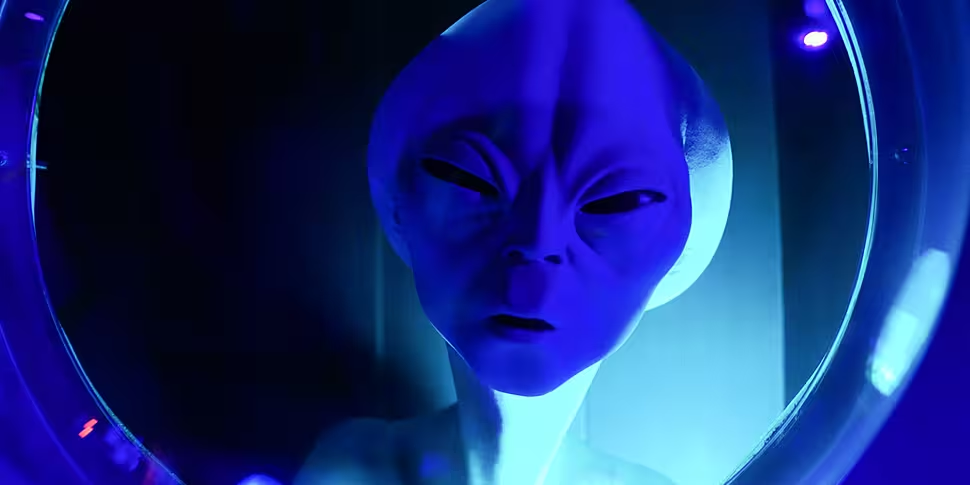A US academic says most scientists don't believe there's any credible evidence that UFOs or aliens have visited Earth - but "it's not ridiculous" to theorise that there is intelligent life somewhere out there.
Interest in UFOs has exploded in recent years, after the Navy confirmed in 2019 that a number of previously leaked videos showing unexplained aerial activity were genuine.
A long-awaited Pentagon report on the subject was issued last month.
However, there was little in the way of concrete info for either UFO believers or sceptics - with officials saying there simply wasn't enough evidence to prove if aliens exist or not.
On Futureproof, Chris Impey - Professor and Deputy Head of the Department of Astronomy at the University of Arizona - said the report was something of a "nothingburger".
However, he said there are still interesting mysteries and questions well worth looking at.
He observed: “Astronomers are in a very interesting position regarding UFOs.
"Most of us don’t think the evidence that aliens have visited the Earth is credible at all. Scientists, for the most part, don’t think it has happened.”
However, he explained it's now projected there are many, many habitable, Earth-like planets in our galaxy alone - very much raising the possibility there is intelligent life somewhere out there.
He said: “It’s not ridiculous to hypothesise there are intelligent aliens out there - astronomers just don’t think they’ve visited us.”
The Pentagon report was a particularly noteworthy moment, as to date US officials have largely been documenting UFOs - now described as UAPs (Unidentified Aerial Phenomena) - in secret. A public acknowledgement of such work has been a long time coming.
It also comes after decades of Americans being fed science fiction movies and books - from Star Trek to Star Wars - about aliens, "conditioning" them to perhaps anticipate the arrival of intelligent lifeforms in the future.
However, Prof Impey said it's not necessarily the possibility of little green men that has authorities interested.
He said: “The big concern for the military and Congress isn’t aliens… but that there’s a national security issue.
"The report didn’t close the door on the fact some of these sightings could be technologies of American adversaries - hypersonic drones or whatever."
"Missing crucial information"
For now, Prof Impey said there are people out there who've done convincing work to debunk the 'UFO' videos - pointing out the footage is likely the result of 'optical artefacts' such as reflections in the cameras.
However, there's simply not enough data out there to comprehensively prove or disprove the many theories out there.
The astronomer explained: “The simple fact is these videos don’t have critical information in them… it doesn’t tell you how big the thing is, or how far away it is or how fast it’s moving. You’re missing crucial information you would absolutely need to interpret what you’re seeing.
“Only a small fraction of the 144 sightings in the report had multiple sensors, to give you a little extra handle on what’s going on.”
Prof Impey said the lack of physical evidence is why so many scientists are “so sceptical” of the existence of UFOs, with very little in the way of concrete evidence beyond grainy videos and eyewitness accounts.
However, he believes there's still value in looking into these things in more detail.
He said: “The fact there’s some maybe core of sightings that are genuinely needing explanation - not people who are misled or mistaken, not artefacts, not astronomical objects people didn’t recognise - is a mystery that needs some attention.
“Some of my colleagues… I think they’ve been a bit blanketly dismissive of the whole subject when there might be a core [of sightings]… worth studying if you have data.
"Forget the videos, forget the images, forget the eyewitness accounts… give us a physical object.”









